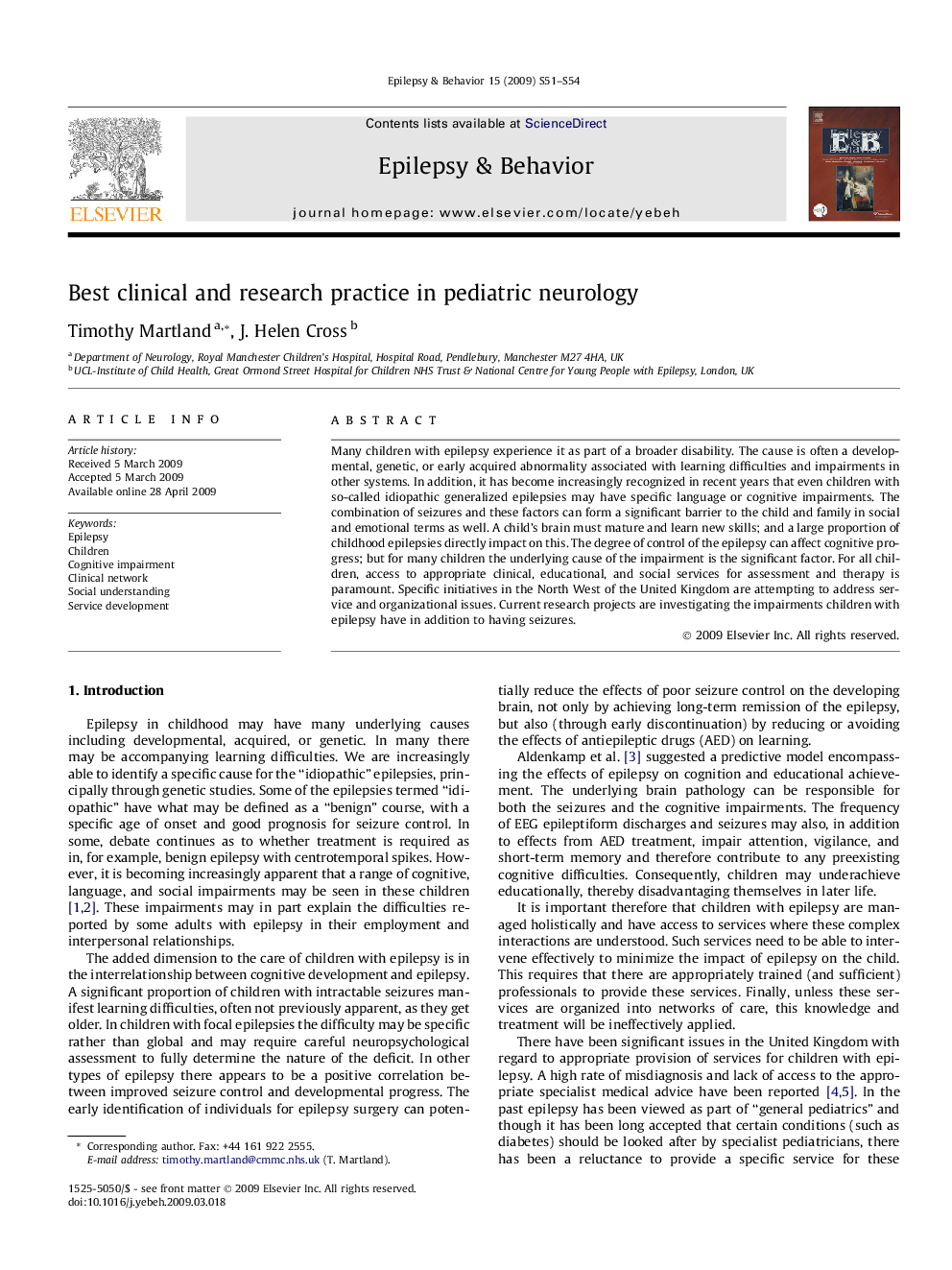| Article ID | Journal | Published Year | Pages | File Type |
|---|---|---|---|---|
| 3050754 | Epilepsy & Behavior | 2009 | 4 Pages |
Many children with epilepsy experience it as part of a broader disability. The cause is often a developmental, genetic, or early acquired abnormality associated with learning difficulties and impairments in other systems. In addition, it has become increasingly recognized in recent years that even children with so-called idiopathic generalized epilepsies may have specific language or cognitive impairments. The combination of seizures and these factors can form a significant barrier to the child and family in social and emotional terms as well. A child’s brain must mature and learn new skills; and a large proportion of childhood epilepsies directly impact on this. The degree of control of the epilepsy can affect cognitive progress; but for many children the underlying cause of the impairment is the significant factor. For all children, access to appropriate clinical, educational, and social services for assessment and therapy is paramount. Specific initiatives in the North West of the United Kingdom are attempting to address service and organizational issues. Current research projects are investigating the impairments children with epilepsy have in addition to having seizures.
